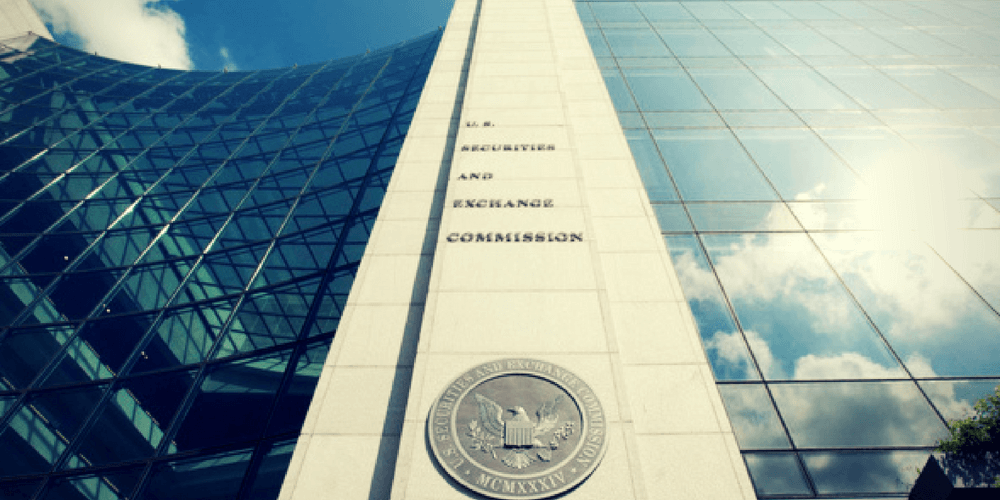
A commissioner at the U.S. Securities and Exchange Commission (SEC) has published a letter of dissent that disagrees with the agency’s decision to reject a second attempt by the Winklevoss twins to launch the first-ever Bitcoin ETF.
Yesterday it was announced that the SEC had denied an application from Cameron and Tyler Winklevoss, founders of crypto exchange Gemini, to list shares of a proposed ETF. On the 30 June, 2016, the Bats BZX Exchange filed a proposed rule change with the Commission seeking to list and trade shares of the Winklevoss Bitcoin Trust.
This was disapproved last March; however, BZX then filed a petition seeking Commission review of the disapproval by delegated authority. Yesterday, though, saw the proposed rule change being denied.
In response, the price of Bitcoin fell from $8,300 prior to the news breaking to around $7,900 during early morning trading today, according to CoinMarketCap.
Following the decision by the SEC, commissioner Hester Peirce has taken to social media and published a letter of dissent. She writes:
“I believe that the proposed rule change satisfies the statutory standard and that we should permit BZX to list and trade this bitcoin-based exchange-traded product (“ETP”).”
She adds that the SEC’s decision “undermines investor protection by precluding greater institutionalization of the bitcoin market,” and that it “sends a strong signal that innovation is unwelcome in our markets,” which could produce an effect far beyond that of Bitcoin ETPs.
In her letter, Peirce explains that the proposed rule change satisfies the requirements of the Exchange Act Section 6(b)(5), but that the Commission “focuses its decision not on the ETP shares to be listed on the exchange but on the underlying bitcoin spot market.” She goes on to state that the SEC “erroneously” reads the requirements for Section 6(b)(5) and doesn’t look at the BZX’s ability to “surveil trading of and to deter manipulation in the ETP shares” that are listed and traded on the exchange.
“The disapproval order’s broad interpretation of the Commission’s statutory mandate signals that the Commission reserves for itself the authority to judge when an innovation is ripe enough, respectable enough, or regulated enough to be worthy of the securities markets,” Peirce said.
According to Mati Greenspan, senior market analyst at eToro, in a daily market update he said that the Winklevoss ETF was never expected to pass. For him, the one that people are excited about, and which has been reported on lately, is the Bitcoin ETF proposed by money management firm VanEck, along with blockchain company SolidX, which is being sponsored by the Chicago Board Options Exchange (CBOE).
An unconfirmed report by the ICO Journal last week stated that a source from the U.S. Commodity Futures Trading Commission (CFTC) said they are “nearly certain” that a Bitcoin ETF will be approved. Greenspan said that such a decision is not likely to happen until March. Hopes remain alive that this may be the first to be approved.
Prior to the Winklevoss rejection, the SEC delayed deliberations on five Bitcoin ETFs filed by NYSE Arca, Inc. A notice states that the Commission will decide by the 21st September on its decision. San Francisco-based asset manager Bitwise has also joined the race to launch the first SEC-regulated crypto ETF.

